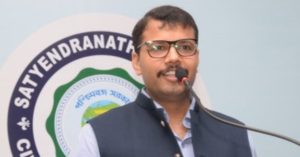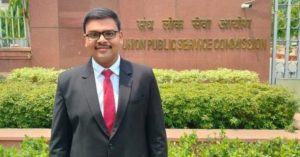6 Things That Helped Me Crack UPSC CSE in a Pandemic Year: IAS Topper
IAS Topper Satyam Gandhi cleared the UPSC CSE in his first attempt in 2020 and secured AIR 10. Find out what strategy worked for him.
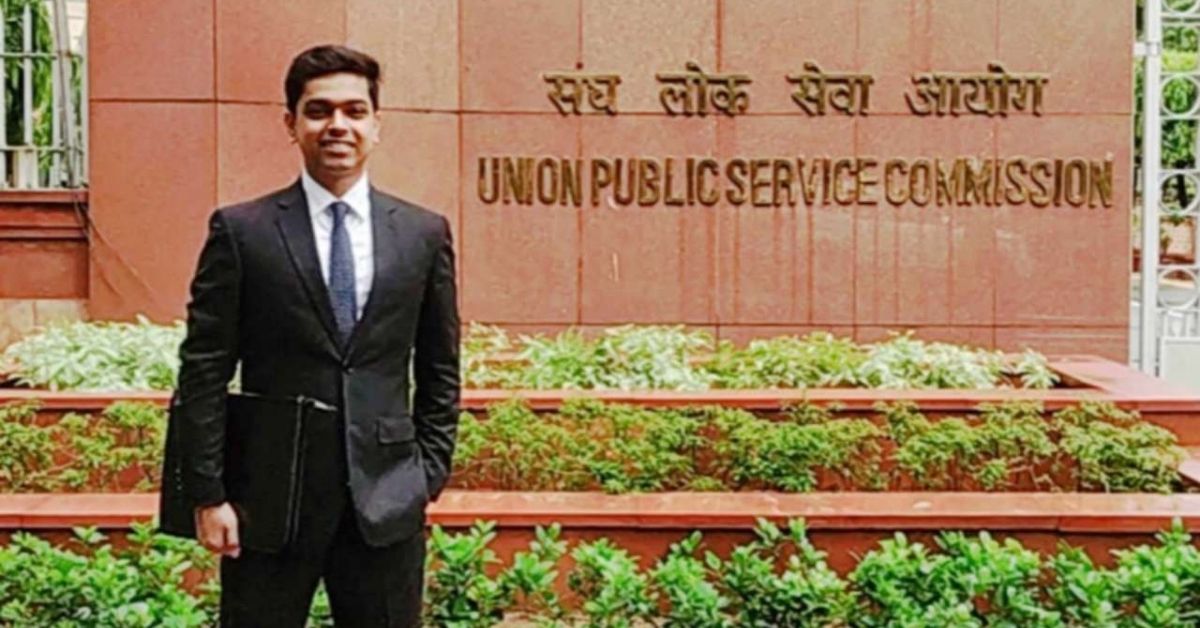
A day before the Union Public Service Commission’s (UPSC) Civil Service Examination (CSE) 2020 results were announced, Satyam Gandhi recollects how he felt. “All I wanted was to be amongst the top 100 names,” he says.
“The joy of finding my name as 10th on the list was a relief and a huge personal accomplishment,” says Satyam, who is a graduate in Political Science from Dyal Singh College affiliated to Delhi University and secured this rank in his very first attempt.
Born and brought up in Dighra, which is Samastipur district in Bihar, Satyam completed his school education and then moved to Delhi for his graduation. “Being in Delhi helped shape my personality to a great extent,” he says. Satyam describes himself as a good student who grew up in an environment that encouraged students to take up the UPSC CSE. “It’s almost as though the DNA of every student in Bihar has a bit of UPSC in it,” he adds.
In his third year of college, Satyam started preparing for the CSE. “While in college, in my first year, I took up an internship, where I was attached to a Block officer in Ranchi in the field of rural development. I saw first-hand how much of a change I could bring about and that experience cemented my desire to study for UPSC.”
Speaking about his preparation period, Satyam says that while the pandemic posed a unique challenge, it did not deter him from his schedule. “During the second wave, I also tested positive for COVID-19 but worked through all the challenges,” he says, adding, “I kept thinking that I was running a marathon and not playing in a T-20 match.”
Here are Satyam’s pointers for aspirants attempting CSE during the pandemic:
1. Create A Sustainable Study Schedule:
“While COVID-19 posed several challenges for aspirants, it also gave aspirants a lot of time. Ensure that you structure your time well and make the most of it. While I say this, it is also important for students to use the time in college to develop their personalities. This will come in handy while appearing for the interview. Work on internships and participate in co-curricular activities while in college for an all-rounded development,” he says.
Starting the UPSC preparation in the third year gave Satyam ample time to explore his other interests in college. He urges aspirants to give themselves time in college before diving into the preparation. He continues, “Use the pre-preparation time to work on your personality. This should reflect in the Detailed Application Form (DAF) that you fill out. UPSC looks for well-rounded personalities and not just those who are studious.”
2. Give it your all:
Satyam explains, “Cut yourself off from everything that is non-related to your preparation. I ensured that other than feeding myself and taking care of my health I did not worry or think about anything other than studying.” Satyam spent the initial few months focussing on cementing his understanding of the basic concepts and then divided his time between studying for the prelims and mains.
Initially, He employed a 70/30 division when it came to studying for prelims and mains. Later, from November-December, he started spending equal time on both prelims and mains preparation.
Thereafter from February, a few months before the prelims, he shifted to spending all his time on prelims preparation alone. He adds, “Before I embarked on my journey I spent time watching several topper videos to get an idea of how they prepared. This gave me a fair idea and helped me form my strategy and plan.”
Satyam relied on the standard set of books while preparing and says that it is better to be well versed with the standard texts rather than spend time on many different content sources. “Quality trumps quantity,” he says. For this exam, aspirants must learn to manage time and reduce time wastage as much as possible.
3. Stick To The Syllabus:
“While many aspirants say that the syllabus for the CSE is vast, it is diverse yet limited,” says Satyam. Before one begins the preparatory journey, sitting with the syllabus and understanding what it entails will help. Pick the books that are prescribed and stick to studying from those. Aspirants can look at other sources once they have mastered the given book list and available content material.
“I would suggest that aspirants revise one text at least 10 to 15 times before they can even look at other study material,” says Satyam. Take some time to plan your study based on the syllabus. “I would divide the syllabus topics into smaller chunks that I could work on during the month. Further, these topics would be divided into weekly and daily plans as well. This is an integrated way of approaching the syllabus and preparation planning,” he adds.
Alongside sticking to the syllabus, aspirants must also solve as many mock papers as possible. “I had solved close to 120 mock papers and spent equal amounts of time analysing the solutions,” he says. Satyam says that staying focussed and revising the same topic several times helps in strengthening one’s grasp over it.
4. Work on Weakness: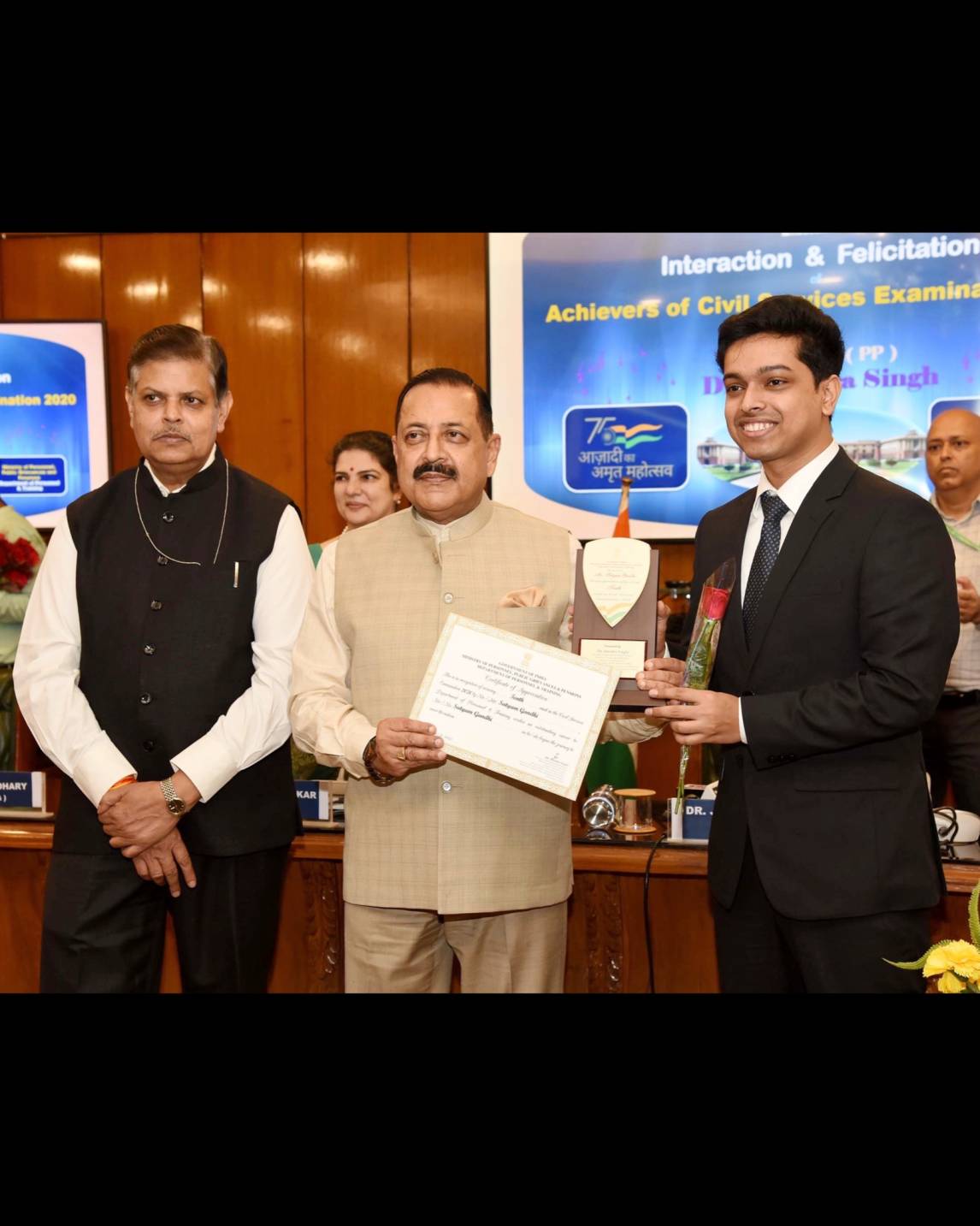
The more mocks you solve the better your understanding of the topic. This will also help you understand what your strengths and weaknesses are. Satyam says, “While you must continue to work on strengthening your stronghold over topics it is equally important to spend time on your weak subjects.” While analysing each mock paper take note of what you do not know and work on that.
“I was weak in history and made a small factbook. This book would contain all the important points that I needed to remember. Every morning, I spent some time revising these facts to ensure that I remembered them at the time of the exam. This was my way of improving in history and aspirants could devise their method as well,” he says.
Even while attempting the mocks, make sure you aim to get above 100 in all sections, says Satyam. Further, he adds, “In the topics you are unable to do so, spend more time to strengthen your understanding of it.”
5. Form A Small Friend Circle and Cultivate a Hobby:
While Satyam chose not to spend time on social media platforms he says that he formed a small but very close-knit group of friends. “These friends were not just those whom I spent my free time with but also called upon when in doubt. These were friends added value to what I was learning,” he says. He mentions here that friendships should be such that you learn from each other’s strengths and weaknesses but never become an obstacle for the other.
In terms of cultivating a hobby, Satyam says that he was always keen on photography. Even though his preparation period he ensured that he kept in touch with the art form. “On days I felt low on motivation I would pick up my camera and walk the streets of Delhi. This helped me come out of that slump. I believe that aspirants must pursue a hobby or passion. It helps in looking at things from a different perspective,” he adds.
6. Use Notes As A Weapon: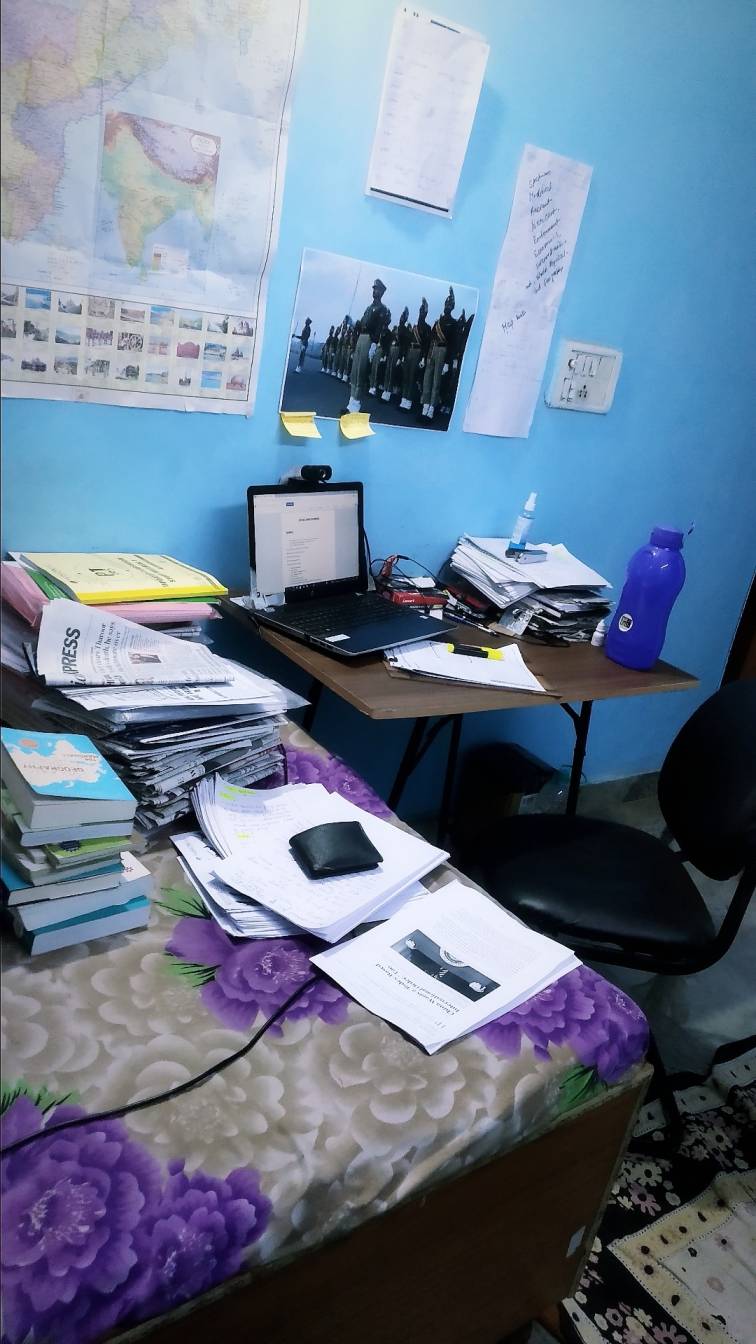
“Notes are like weapons during the CSE preparation stage. If you do not have good notes you are going to lose. While for the prelims one does not require to make notes for mains one must have comprehensive notes to fall back on,” he says. For the general studies and optional paper Satyam says he made exhaustive notes. Before the mains, Satyam only revised using the notes he had.
“Fore prelims revise from the books and for mains revise only from the comprehensive notes that you make,” he says.
Satyam adds here the importance of reading the newspaper. He read two newspapers daily – Hindu in the morning and The Indian Express before going to bed. “I would devote 45 minutes to each paper,” he says.
Make reading the newspaper a habit, says Satyam but he also urges aspirants to not spend time making notes of news articles they read. He adds here that reading the newspaper should be done to build a general temperament and not from an exam point of view.
“Read to stay updated and be aware [of current events],” he concludes.
(Edited by Yoshita Rao)
This story made me
- 97
- 121
- 89
- 167
Tell Us More
We bring stories straight from the heart of India, to inspire millions and create a wave of impact. Our positive movement is growing bigger everyday, and we would love for you to join it.
Please contribute whatever you can, every little penny helps our team in bringing you more stories that support dreams and spread hope.






